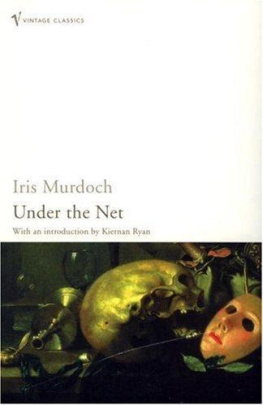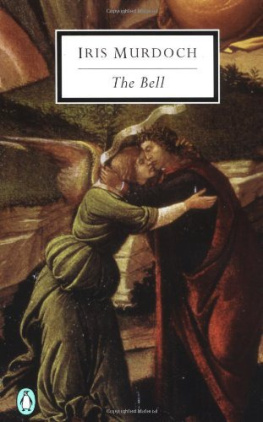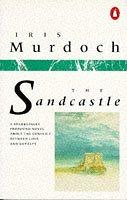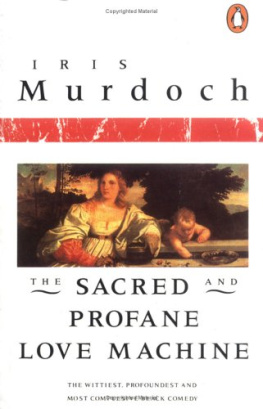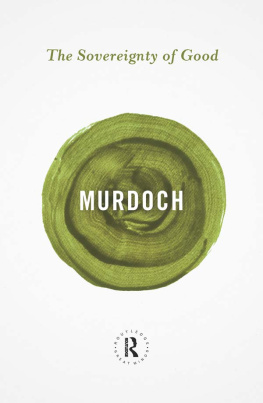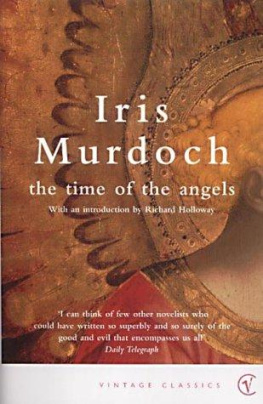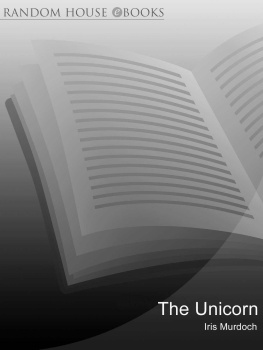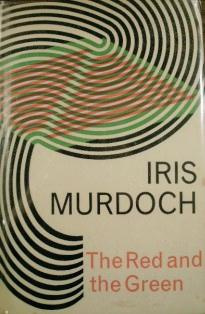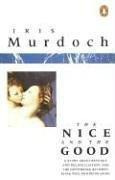Iris Murdoch - Under the Net
Here you can read online Iris Murdoch - Under the Net full text of the book (entire story) in english for free. Download pdf and epub, get meaning, cover and reviews about this ebook. year: 1977, publisher: Penguin (Non-Classics), genre: Art. Description of the work, (preface) as well as reviews are available. Best literature library LitArk.com created for fans of good reading and offers a wide selection of genres:
Romance novel
Science fiction
Adventure
Detective
Science
History
Home and family
Prose
Art
Politics
Computer
Non-fiction
Religion
Business
Children
Humor
Choose a favorite category and find really read worthwhile books. Enjoy immersion in the world of imagination, feel the emotions of the characters or learn something new for yourself, make an fascinating discovery.
- Book:Under the Net
- Author:
- Publisher:Penguin (Non-Classics)
- Genre:
- Year:1977
- Rating:5 / 5
- Favourites:Add to favourites
- Your mark:
- 100
- 1
- 2
- 3
- 4
- 5
Under the Net: summary, description and annotation
We offer to read an annotation, description, summary or preface (depends on what the author of the book "Under the Net" wrote himself). If you haven't found the necessary information about the book — write in the comments, we will try to find it.
Under the Net — read online for free the complete book (whole text) full work
Below is the text of the book, divided by pages. System saving the place of the last page read, allows you to conveniently read the book "Under the Net" online for free, without having to search again every time where you left off. Put a bookmark, and you can go to the page where you finished reading at any time.
Font size:
Interval:
Bookmark:
Iris Murdoch
Under the Net
First published in 1954
All, all of a piece throughout:
Thy Chase had a Beast in view:
Thy Wars brought nothing about;
Thy Lovers were all untrue.
'Tis well an old Age is out,
And time to begin a New.
DRYDEN, The Secular Masque
To
RAYMOND QUENEAU
One
When I saw Finn waiting for me at the corner of the street I knew at once that something had gone wrong. Finn usually waits for me in bed, or leaning up against the side of the door with his eyes closed. Moreover, I had been delayed by the strike. I hate the journey back to England anyway; and until I have been able to bury my head so deep in dear London that I can forget that I have ever been away I am inconsolable. So you may imagine how unhappy it makes me to have to cool my heels at Newhaven, waiting for the trains to run again, and with the smell of France still fresh in my nostrils. On this occasion too the bottles of cognac which I always smuggle had been taken from me by the Customs, so that when closing time came I was utterly abandoned to the torments of a morbid self-scrutiny. The invigorating objectivity of true contemplation is something which a man of my temperament cannot achieve in unfamiliar towns in England, even when he has not also to be worrying about trains. Trains are bad for the nerves at the best of times. What did people have nightmares about before there were trains? So all this being considered, it was an odd thing that Finn should be waiting for me in the road.
As soon as I saw Finn I stopped and put the cases down. They were full of French books and very heavy. I shouted 'Hey!' and Finn came slowly on. He never makes haste. I find it hard to explain to people about Finn. He isn't exactly my servant. He seems often more like my manager. Sometimes I support him, and sometimes he supports me; it depends. It's somehow clear that we aren't equals. His name is Peter O'Finney, but you needn't mind about that, as he is always called Finn, and he is a sort of remote cousin of mine, or so he used to claim, and I never troubled to verify this. But people do get the impression that he is my servant, and I often have this impression too, though it would be hard to say exactly what features of the situation suggest it. Sometimes I think it is just that Finn is a humble and self-effacing person and so automatically takes second place. When we are short of beds it is always Finn who sleeps on the floor, and this seems thoroughly natural. It is true that I am always giving Finn orders, but this is because Finn seems not to have many ideas of his own about how to employ his time. Some of my friends think that Finn is cracked, but this is not so; he knows very well indeed what he is about.
When Finn came up to me at last I indicated one of the cases for him to carry, but he did not pick it up. Instead he sat down on it and looked at me in a melancholy way. I sat down on the other case, and for a little while we were silent. I was tired, and reluctant to ask Finn any questions; he would tell all soon enough. He loves trouble, his own or other people's without discrimination, and what he particularly likes is to break bad news. Finn is rather handsome in a sad lanky fashion, with straight drooping brownish hair and a bony Irish face. He is a head taller than me (I am a short man), but he stoops a little. As he looked at me so sadly my heart sank.
'What is it?' I said at last.
'She's thrown us out,' said Finn.
I could not take this seriously; it was impossible.
'Come now,' I said kindly to Finn. 'What does this really mean?'
'She's throwing us out,' said Finn. 'Both of us, now, today.' Finn is a carrion crow, but he never tells lies, he never even exaggerates. Yet this was fantastic.
'But why?' I asked. 'What have we done?'
'It's not what we've done, it's what she's after doing,' said Finn. 'She's going to get married to a fellow.'
This was a blow. Yet even as I flinched I told myself, well, why not? I am a tolerant and fair-minded man. And next moment I was wondering, where can we go?
'But she never told me anything,' I said.
'You never asked anything,' said Finn.
This was true. During the last year I had become uninterested in Magdalen's private life. If she goes out and gets herself engaged to some other man whom had I to thank but myself?
'Who is this person?' I asked.
'Some bookie fellow,' said Finn.
'Is he rich?'
'Yes, he has a car,' said Finn. This was Finn's criterion, and I think at that time it was mine too.
'Women give me heart disease,' Finn added. He was no gladder than I was at being turned out.
I sat there for a moment, feeling a vague physical pain in which portions of jealousy and wounded pride were compounded with a profound sense of homelessness. Here we were, sitting in Earls Court Road on a dusty sunny July morning on two suitcases, and where were we to go next? This was what always happened. I would be at pains to put my universe in order and set it ticking, when suddenly it would burst again into a mess of the same poor pieces, and Finn and I be on the run. I say my universe, not ours, because I sometimes feel that Finn has very little inner life. I mean no disrespect to him in saying this; some have and some haven't. I connect this too with his truthfulness. Subtle people, like myself, can see too much ever to give a straight answer. Aspects have always been my trouble. And I connect it with his aptness to make objective statements when these are the last things that one wants, like a bright light on one's headache. It may be, though, that Finn misses his inner life, and that that is why he follows me about, as I have a complex one and highly differentiated. Anyhow, I count Finn as an inhabitant of my universe, and cannot conceive that he has one containing me; and this arrangement seems restful for both of us.
It was more than two hours till opening time, and I could hardly face the thought of seeing Magdalen at once. She would expect me to make a scene, and I didn't feel energetic enough to make a scene, quite apart from not knowing anyway what sort of scene I ought to make. That would need some thinking out. There is nothing like being ousted for making one start to specify what it is one is being ousted from. I wanted time to reflect on my status.
Would you like a cup of coffee in Lyons'?' I said to Finn hopefully.
'I would not,' said Finn; 'I'm destroyed already waiting for you to come back, and herself wishing me at the devil. Come on now and see her.' And he started off down the street. Finn never refers to people otherwise than by pronouns or vocatives. I followed him slowly, trying to work out who I was.
Magdalen lived in one of those repulsive heavy-weight houses in Earls Court Road. She had the top half of the house; and there I had lived too for more than eighteen months, and Finn as well. Finn and I lived on the fourth floor in a maze of attics, and Magdalen lived on the third floor, though I don't say we didn't see a lot of each other, at any rate at first. I had begun to feel that this was my home. Sometimes Magdalen had boy friends, I didn't mind and I didn't inquire. I preferred it when she had, as then I had more time for work, or rather for the sort of dreamy unlucrative reflection which is what I enjoy more than anything in the world. We had lived there as snug as a pair of walnuts in their shells. We had also lived there practically rent-free, which was another point. There's nothing that irritates me so much as paying rent.
Magdalen, I should explain, is a typist in the city, or she was at the time of the earlier events related in this story. This hardly describes her, however. Her real employment is to be herself, and to this she devotes a tremendous zeal and artistry. Her exertions are directed along the lines suggested to her by women's magazines and the cinema, and it is due simply to some spring of native and incorruptible vitality in her that she has not succeeded in rendering herself quite featureless in spite of having made the prevailing conventions of seduction her constant study. She is not beautiful: that is an adjective which I use sparingly; but she is both pretty and attractive. Her prettiness lies in her regular features and fine complexion, which she covers over with a peach-like mask of make-up until all is as smooth and inexpressive as alabaster. Her hair is permanently waved in whatever fashion is declared to be the most becoming. It is a dyed gold. Women think that beauty lies in approximation to a harmonious norm. The only reason why they fail to make themselves indistinguishably similar is that they lack the time and the money and the technique. Film stars, who have all these, are indistinguishably similar. Magdalen's attractiveness lies in her eyes, and in the vitality of her manner and expression. The eyes are the one part of the face which nothing can disguise, or at any rate nothing which has been invented yet. The eyes are the mirror of the soul, and you can't paint them over or even sprinkle them with gold dust. Magdalen's are big and grey and almond-shaped, and glisten like pebbles in the rain. She makes a lot of money from time to time, not by tapping on the typewriter, but by being a photographer's model; she is everyone's idea of a pretty girl.
Next pageFont size:
Interval:
Bookmark:
Similar books «Under the Net»
Look at similar books to Under the Net. We have selected literature similar in name and meaning in the hope of providing readers with more options to find new, interesting, not yet read works.
Discussion, reviews of the book Under the Net and just readers' own opinions. Leave your comments, write what you think about the work, its meaning or the main characters. Specify what exactly you liked and what you didn't like, and why you think so.

